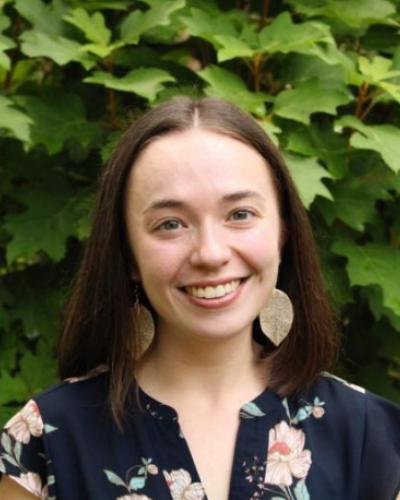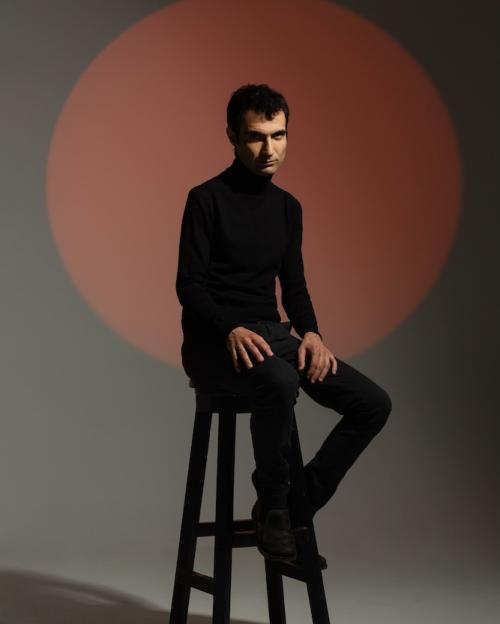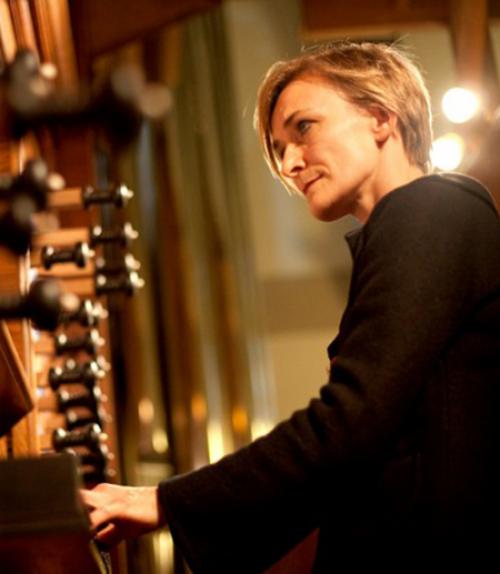The Cornell Center for Historical Keyboards celebrated a new space for its instrument collection at 726 University Ave. with “New Meets Old: Collaborative Confrontations,” a festival Sept. 6-7, presented by the Department of Music in the College of Arts and Sciences.
The space will provide a rotating home for some of the center’s concert-ready keyboard instruments. With emeritus professor Malcolm Bilson’s fortepianos as the core, the collection includes a wide range of 18th- to early 20th-century pianos, as well as Cornell’s organs, harpsichords, clavichords and other keyed instruments.
The new location will be a collaborative space for researchers, performers and students, providing an array of programming and resources of interest to specialists and the public. These will include artist and scholar residencies, festivals, workshops, concerts and masterclasses. The programs will explore the history and technology of keyboard instruments from the earliest organs to the Moog synthesizer, their influence in music and the arts, and larger impact on global social history.
“Here we can experience the wonderful variety in keyboard instruments since 1700, especially in fortepianos and pianos between the late 18th century and early 20th, all in top playing condition,” said Bilson, the Frederick J. Whiton Professor Emeritus of Music, who has been in the forefront of the period-instrument movement for more than 40 years.
“All the instruments will be in good tune and concert-ready at all times,” he said. “I could hardly have thought, when I encountered my first ‘Mozart piano’ some 40 years ago, that by today such an impressive variety would be available for teaching, concerts and recording.”
The new center, made possible by an anonymous donation, is an outgrowth of the Department of Music’s long-standing relationship with the Westfield Center for Historical Keyboard Studies.
“The long history of keyboard culture is endlessly fascinating, and hugely productive for interdisciplinary inquiry, with the remarkable instruments themselves not just vehicles for artistic expression but the physical embodiment of technological experimentation and advance,” said Annette Richards, professor of music, university organist and the center’s founding director. “Cornell’s keyboard instruments are an incredible resource for students, faculty, visiting performers and scholars, and the whole community.”
Verity Platt, professor of classics and the history of art and visual studies, and chair of CIVIC (Critical Inquiry into Value Imagination and Culture: The Provost’s Task Force for the Humanities and Arts), said: “The historical keyboard collection is very much part of Cornell’s unique collection of old media-new media materials. It’s exciting to see another addition to Cornell’s wide array of media studies resources available for the ‘Media, Material Cultures and the Senses’ project in the provost’s CIVIC initiative.”
The Sept. 6-7 celebration showcased the collection and included concerts, demonstrations, talks and lecture-recitals at multiple locations on campus. All events were free and open to the public.
Festival events began with “Keyboards in Conversation,” Sept. 6 at 8 p.m. in Sage Chapel, featuring performances on the Aeolian-Skinner and Vicedomini organs by Annette Richards; and on the Bechstein and Schweighofer pianos by Richard Valitutto, Aditya Deshpande, Andy Sheng and Thomas Reeves. The program included music by César Franck, Olivier Messiaen, Jehan Alain, Arvo Pärt and Cornell composer Roberto Sierra, and a premiere of a piece by Miles Jefferson Friday.
On Sat., Sept. 7, festival events kicked off with “Keyboard Colloquies,” in Barnes Hall, where music faculty Bilson, Xak Bjerken and Roger Moseley gave an introduction to the historical keyboard collection at 9:30 a.m., followed by a lecture-demonstration by graduate students, “Translations and Transcriptions,” on a variety of keyboard instruments at 10:45 a.m.
At 1:30 p.m. in Anabel Taylor Chapel, David Yearsley performed music by J. S. Bach on the Cornell Baroque Organ.
From 2:30 to 4:30 p.m., the public was invited to an open house at 726 Univ. Ave. to view and learn about the instruments of the collection, with music faculty Bilson, Bjerken, Moseley, Yearsley and Richards, and Cornell graduate students, on hand to answer questions.
The festival concluded at 8 p.m. in Barnes Hall with “Keyboard Collaborations” featuring Bilson playing Chopin on a Pleyel piano; Andrew Zhou playing compositions by Christopher Stark on a Steinway piano; Miri Yampolsky and Bjerken playing Brahms, Dvořák, and Mendelssohn on a Blüthner piano; Moseley and Rachel Schutz performing songs by Schubert and Robert and Clara Schumann on a Graf piano; Moseley and Bilson playing Mozart on a Walter piano; and Richard Valitutto and Bjerken playing Kurtág and Bach on a Steinway piano.





